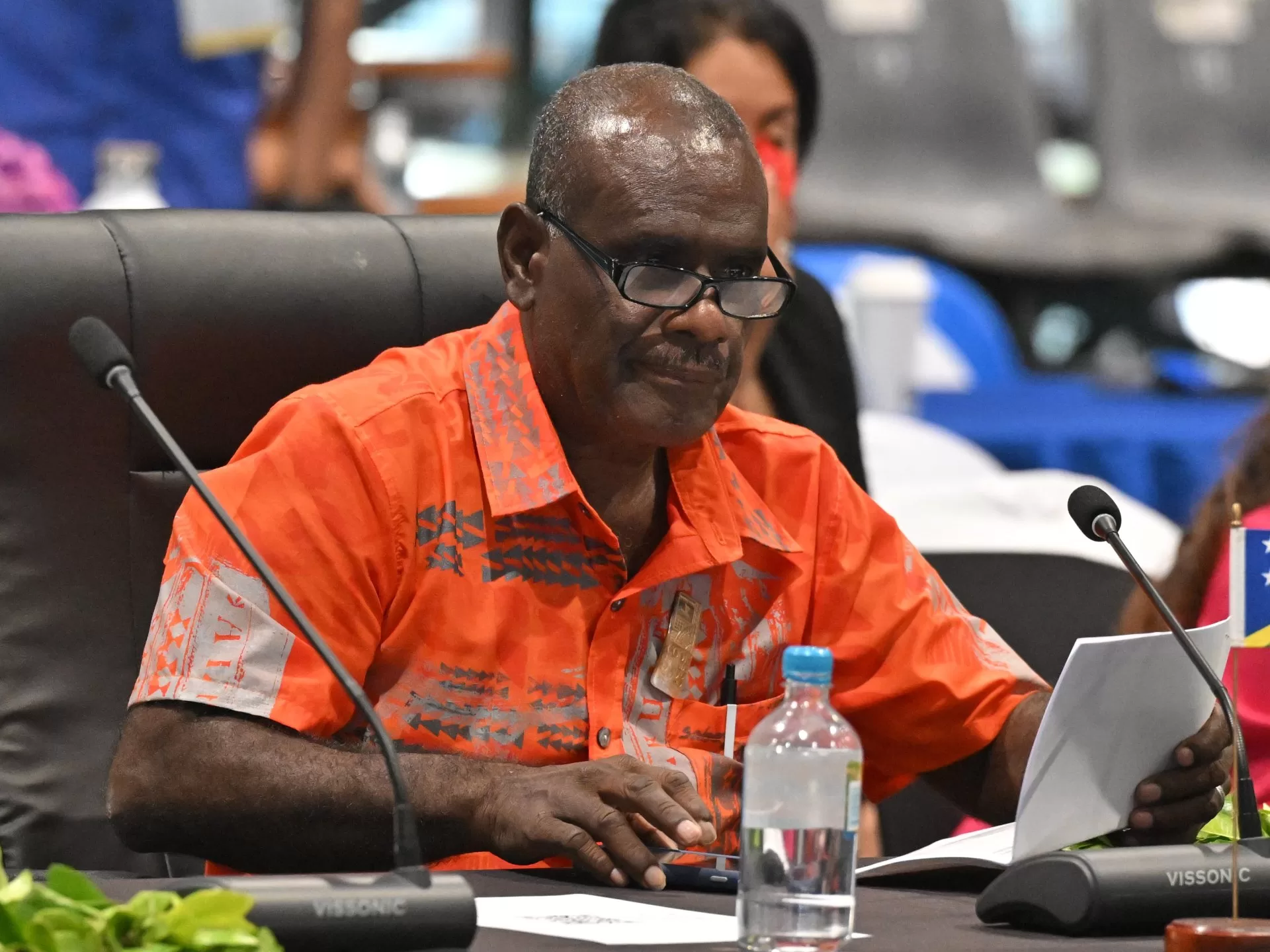Published On 8 Sep 2025
Pacific Island leaders have kicked off their annual summit in the Solomon Islands, with climate change and security expected to take centre stage amid the battle for influence in the region between China and the United States.
The weeklong gathering began in Honiara on Monday with a meeting of the group’s small island states.
Recommended Stories
list of 4 itemsend of list
The leaders of the 18-member forum, including Australia and New Zealand, will head to the seaside settlement of Munda for a retreat on Thursday.
Notably, this year’s summit will take place without the forum’s two dozen donor partners, including China, the US and Taiwan, after a dispute over Taipei’s attendance caused the Solomon Islands to bar those observers.
Among 18 forum members, three have diplomatic ties with Taiwan, three have defence compacts with the US, and several are French territories. Thirteen of the members have ties with China.
Divavesi Waqa, the secretary-general of the Pacific Islands Forum, said this year’s meeting will cover “regional priorities”, including “climate change, ocean governance, security, [and] economic resilience”.
“These are not just policy issues. They are lived realities for our people,” Waqa told reporters on Sunday.
Solomon Islands Prime Minister Jeremiah Manele, who welcomed leaders from neighbouring countries to Honiara, said the meeting’s theme “Lumi Tugeda: Act Now for an Integrated Blue Pacific Continent” reflected the “urgency for regional unity and action”.
“If ever there was a time that demanded strengthened Pacific regionalism and collective action, it is now,” Manele said, according to a statement.
The Solomon Islands leader, who has sought to strengthen relations with Australia after Western criticism of his predecessor’s close ties with China, has previously defended his decision to bar foreign observers.
Manele told the Australian Broadcasting Corporation (ABC) last month that the decision was temporary while the forum updates its procedures for non-member participation.
“The Pacific region must always lead, drive and own their own agenda and not be distracted by divisive issues pushed by external media,” Manele said, in apparent reference to reports that the decision was related to a decision not to include Taiwan in this year’s meeting.
“We are not under pressure from any external forces,” he said.
“Let me be very clear: Solomon Islands is a sovereign nation. Our government acts in the best interests of our nation and the region.”
At this year’s forum, the Pacific Islands leaders are expected to sign the Fiji-proposed “Ocean of Peace” Declaration, which the country’s Prime Minister Sitiveni Rabuka said comes as the Pacific region has “endured catastrophic calamities caused by climate change” as well as “its rich resources exploited by many”.
The proposal includes guiding principles, including “protecting and recognising the Pacific’s stewardship of the environment” as well as “peaceful resolution of disputes” and “rejection of coercion”, he said.
According to ABC, Australia’s Prime Minister Anthony Albanese will arrive in Honiara on Wednesday after visiting Vanuatu, where he is expected to sign a landmark pact to strengthen economic and security ties.
Vanuatu recently led an important case before the International Court of Justice, which saw the United Nations’ top court rule that states must act urgently to address the “existential threat” of climate change by cooperating to cut emissions.
Australia’s bid to host next year’s COP31 climate change meeting, as a Pacific COP, will be on the agenda in Honiara, amid criticism of Canberra’s mixed record on reducing its own emissions and fossil fuel exports.
Australia has previously pledged to work closely with its island neighbours to raise awareness of the challenges they face from rising sea levels and worsening storms.
The forum’s 18 members are Australia, the Cook Islands, the Federated States of Micronesia, Fiji, French Polynesia, Kiribati, Nauru, New Caledonia, New Zealand, Niue, Palau, Papua New Guinea, the Republic of the Marshall Islands, Samoa, Solomon Islands, Tonga, Tuvalu, and Vanuatu.
